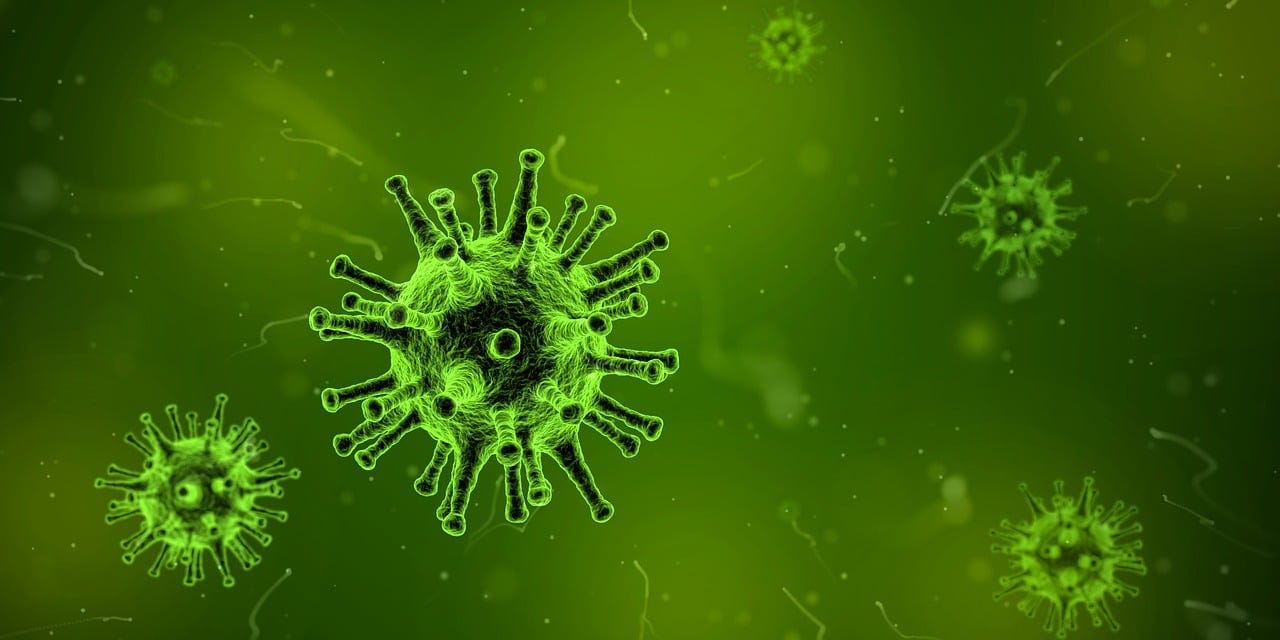From the Archives: The War of the Microbes
Some ideas are too good to stay in the dustbin. Here's an old piece of mine I think you'll like, and there'll be another every other week.
This piece was originally published on LinkedIn.
The coronavirus has, in the manner of Genghis Khan or Alexander the Great, temporarily conquered the known world of humans. Bacteria, another type of microbe like viruses, prevented the conquest of humans in H.G. Wells’ fictional The War of the Worlds although Wells never specified whether it was bacteria, viruses or other types of microbes likes fungi and parasites.
While the coronavirus has captured our imagination in its war against us, microbes have all along been fighting against us—but also helping us. We have trillions of microbes that live both on us and in us making up what is known as our “microbiome.” Most of them are good bugs, helping you to digest foods, make vitamins, heal wounds and fight against bad bacteria like Salmonella.
Starting with our slide down our mother’s birth canal, we continue picking up microbes from food, water, air, pets and, our concern du jour, other people and doorknobs. We end up with more microbial than human cells. In addition to being factors in controlling our moods, personality and temperament, they also appear to be playing a role in telling us what to eat.
While our hormonal system tells us when we have eaten too much, that system can be overridden by our microbiome. In our gut there is a war fought between two major players (90 percent of bacteria), Bacteroidetes and Firmicutes. The Firmicutes are better at sucking calories out of food so, when they are winning, we get fatter. To fight each other, they each send signals to your brain telling you what they need. Firmicutes, for example, will ask for junk food and if you comply, they will multiply at the expense of Bacteroidetes. If you don’t give them junk food, they will die and the Bacteroidetes will win which will help you to be thinner. This research is still in its beginning phases, but it’s possible that, for example, repopulating your gut with better microbes will make you thinner and healthier.
Besides possible ways of manipulating gut bacteria to control weight, we are still looking for a way to avoid 48 million people getting sick every year from food poisoning. One way would be for everyone to go back to farming. Farmers and their children develop an immunity to lots of nasty pathogenic bacteria because they are continually exposed to them. These bacteria, like Salmonella, Listeria and E. coli are everywhere and it is impossible to keep them out of foods from farms, ranches and waters. We can have cleaner processing plants and do lots of paperwork but, in the end, they are still going to find a way to get to us.
One possibility is that we just move food production away from farms, ranches and waters and grow our foods in relatively sterile laboratories. It sounds like science fiction but the Impossible Burger, beginning with a genetically modified protein from the root of a soy plant and then grown using a precise form of fermentation, is a technology that can be used to grow anything we eat today. What’s more, fermented foods contain Bifidobacteria, a probiotic eaten by Bulgarians that was linked to long lives in the 19th century. This is one reason why there has been a yogurt fad for decades and, if it does turn out to be helpful, the newer precision fermentation technology will be immensely important.
Yet another way we will enlist microbes, particularly viruses, is to use them as messengers carrying healthy genes to fix damaged ones. Recently, the FDA approved a genetically modified herpesvirus for treating cancer as well as boosting immune functions. In this type of gene therapy, viruses are used as carriers to deliver healthy genes into damaged cells. These therapies are suggested for cardiovascular, infectious diseases and different types of cancer therapy as well as prevention.
No matter which research pathways pan out, we are looking at a future where we will not always be victims of microbes—instead, through technological innovation, we will harness them to cure or prevent diseases.





